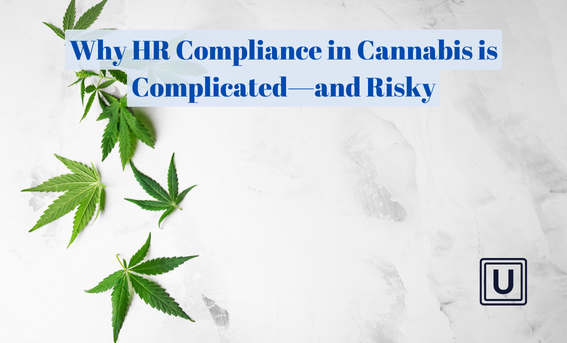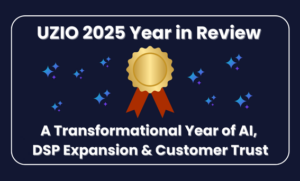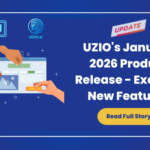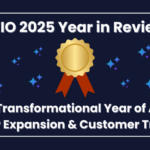
Why HR Compliance in Cannabis is Complicated—and Risky
Operating a cannabis business in the U.S. isn’t just about licensing, inventory, and tax compliance—it’s about managing your people the right way, every day. And in 2025, the HR landscape is more complex than ever.
The cannabis industry exists in a unique legal gray zone. While many states have legalized cannabis for medical or recreational use, it remains a Schedule I substance at the federal level. That means cannabis businesses must operate like any mainstream employer—while navigating extra layers of scrutiny and risk.
At the same time, new state-level HR laws are constantly being enacted—from expanded paid family leave and minimum wage increases to regulations around pregnancy accommodations, cannabis use and disability, and workplace safety protocols.
The risk of non-compliance?
- Costly lawsuits
- OSHA fines
- Employee complaints or whistleblowing
- Lost licenses or banking privileges
- Poor employee retention and reputational damage
In short: you don’t get a compliance pass just because you’re in cannabis. You get held to a higher standard—and often with fewer resources.
1. The 2025 HR Compliance Checklist: Federal & State Laws to Track
Below is a concise, action-oriented rundown of the rules most likely to trip up cannabis SMBs this year. For each item you’ll see:
- Why it matters for cannabis operators
- Key 2025 changes (federal or state)
- Action steps you can take today—plus how UZIO streamlines each one
Pro-tip: Regulations differ by state. Where you operate in multiple jurisdictions (California today, New York tomorrow), document which locations fall under each rule and keep everything in a single source of truth—your HRIS.
| # | 2025 Hot-Button Law / Rule | Why Cannabis SMBs Should Care | 2025 Snapshot | Immediate Action Steps | How UZIO Helps |
|---|---|---|---|---|---|
| 1 | Crown Act (Anti-hair discrimination) | Retail budtenders and trimmers often wear natural hairstyles; bias claims hurt brand & morale. | Now law in >25 states (incl. CA, NY, WA). More on the ballot for 2025. | • Update grooming & dress-code language. • Add anti-bias training for managers. • Record policy acknowledgments. |
Upload revised policy in UZIO HRIS → push e-acknowledgment to all employees; track completions in dashboard. |
| 2 | Pregnant Workers Fairness Act (PWFA) | Cultivation & processing roles may involve standing, lifting, chemicals—accommodations are mandatory. | Federal law in force; EEOC enforcement ramping up in Q3-2025. | • Design a “reasonable accommodation” request form. • Train supervisors on interactive dialogue. • Document every accommodation provided. |
Use UZIO Forms & Workflows to capture requests, route to HR, and archive decisions for audit defense. |
| 3 | Paid Family & Medical Leave (PFML) | Manufacturing sites with small crews can’t afford surprise absences without a plan. | New PFML programs kicking in for MO, NE, AK; CA tweaks contribution rates mid-year. | • Map which employees are covered. • Update leave balances in payroll. • Communicate wage-replacement rules. |
UZIO Leave Tracker Checks for eligibility, auto-calculates accruals and syncs with payroll so checks remain accurate. |
| 4 | State Minimum-Wage Hikes | Cannabis payroll margins are tight; errors = back-pay + penalties. | 23 states raise rates on Jan 1; some (e.g., FL, OR) add mid-year bumps. | • Post updated wage posters. • Audit pay grades for compression. • Adjust piece-rate or trimmer-by-pound formulas. |
UZIO Payroll pulls real-time wage tables by work location and flags any pay rates below the new floor. |
| 5 | ADA vs. Off-Duty Cannabis Use | Employees may hold medical cards; state protections vary widely. | No federal protection yet, but CA, NY, NJ, CT, NV shield off-duty use—TX & GA do not. | • Separate impairment tests from drug tests. • Spell out “safety-sensitive” roles. • Consult counsel before adverse action. |
Store state-specific drug-testing policies in UZIO; HR can tag roles as “safety-sensitive” for easy reference. |
| 6 | OSHA & Workplace Safety (Cannabis Dust, PPE) | Processing keef/dust can trigger asthma; OSHA fines in 2024 exceeded $500k. | OSHA targeting airborne dust in 2025 blitz states (CA, CO, MA). | • Conduct air-quality assessment. • Mandate N95 or equivalent PPE. • Log training & fit-test records. |
Upload safety SOPs into UZIO LMS; auto-assign annual refresher courses and store completion certificates. |
2. Misclassification & Temporary Labor: The Hidden Compliance Trap
One of the most overlooked risks in cannabis HR compliance isn’t flashy legislation—it’s the everyday decisions around how you classify your workforce. For cannabis SMBs using seasonal workers, trimmers, or budtenders on flexible schedules, this can be a legal minefield.
The Risk
Improperly classifying employees as:
- 1099 contractors instead of W-2 employees
- Piece-rate workers without guaranteed minimum wage
- Temp workers without confirming proper vetting and licensing
…can trigger lawsuits, tax penalties, or disqualification from licensing renewals.
Arabella (a licensed farm labor contractor in California) shared how even well-meaning operators get burned by hiring through unlicensed temp agencies or failing to confirm that workers have proper training, I-9s, and harassment compliance.
Real-World Missteps Cannabis SMBs Must Avoid
| Misstep | What Happens | UZIO Response |
|---|---|---|
| Paying by the pound (e.g., trimmers) | Violates federal Fair Labor Standards Act (FLSA) if effective hourly pay falls below minimum wage | Use UZIO Payroll to configure hourly + performance-based bonus legally |
| Using “1099” gig labor for core operations | Workers file for unemployment or back pay → you’re liable for misclassification | Onboard all hires via UZIO HRIS, which flags risky classifications |
| Working with unlicensed staffing vendors | Labor compliance failures → penalties shift to you | Maintain signed vendor compliance attestations in UZIO’s Document Center |
| Skipping harassment or safety training for temp staff | You’re liable for ALL workers on your premises—even temps | Assign required LMS courses (e.g., sexual harassment, OSHA) to all workers, not just FTEs |
Pro-Tip for Operators:
“Temporary labor is not temporary liability. If they’re working under your roof—you’re responsible.”
3. Operate Like a Mainstream Business: Federal Agencies Aren’t Looking the Other Way
Many cannabis employers assume that because their business is federally illegal, they somehow fly under the radar of traditional regulatory bodies. That’s a dangerous misconception.
As the panelists emphasized in the webinar: OSHA, EEOC, the IRS, and even the Department of Labor treat you like any other employer—and in some cases, they scrutinize cannabis businesses more closely due to perceived risk.
Federal Oversight Is Real—and Rising
| Agency | What They Watch | Cannabis Impact |
|---|---|---|
| OSHA | Workplace safety (air, equipment, PPE, training) | Cited cannabis processors for dust inhalation fatalities (e.g., Trulieve case) |
| EEOC | Discrimination, sexual harassment, DEI policies | Filed lawsuits against cannabis operators in federal court |
| DOL | Wage & hour violations, misclassification | No leniency for “piece rate” pay or off-books labor |
| IRS | Payroll tax compliance, benefits plans | Cannabis workers still subject to standard tax law—even under 280E restrictions |
Common Cannabis-Specific Compliance Mistakes
- Failing to define safety-sensitive roles (critical when testing for cannabis use)
- Lacking documented SOPs or handbooks to show policies were communicated
- No escalation chain for reporting HR or safety violations
- Operating without valid venue/choice-of-law provisions in contracts, which can leave you vulnerable in hostile state or federal courts
Whether you’re in cannabis or coffee, you must operate with the same HR discipline as any Fortune 500 company—just with more landmines to avoid.
4. Multi-State Headaches, Future-Proof Solutions: Why UZIO Is Built for Cannabis SMBs
As the cannabis industry matures, multi-state operators (MSOs) and ambitious single-state businesses alike are facing a new reality:
What works in California might get you fined in Florida.
What you did last year may be non-compliant today.
Laws shift rapidly—whether it’s around off-duty cannabis use, minimum wage thresholds, mandated benefits, or training requirements. Without a system that scales across jurisdictions, compliance becomes guesswork.
Common Challenges for Growing Cannabis SMBs
| Challenge | Risk | UZIO Solution |
|---|---|---|
| Expanding into a new state without updated wage & leave policies | Back pay lawsuits, audit penalties | UZIO auto-updates labor law compliance by state, synced with payroll |
| Lack of centralized SOPs & version control | “I didn’t know” is not a defense | UZIO HRIS stores versioned policies, with digital acknowledgment tracking |
| Running disconnected systems (payroll, HR, compliance) | Errors, miscommunication, missed deadlines | UZIO is a unified platform built to simplify cannabis operations |
5. Final Takeaway: Cannabis HR Is High-Risk—But With UZIO, You’re Covered
Regulators don’t care if you’re a cannabis company or a coffee shop—you’re expected to hire, train, pay, and protect your team in full compliance with the law.
UZIO helps you get there faster.
From onboarding and handbook creation to training and payroll audits, our AI-first HR and compliance platform is built for cannabis businesses like yours.
Schedule a demo or Talk to our compliance team to see how UZIO can help your cannabis business stay audit-ready and future-proof in 2025.
Recommended Reading: Biggest pain point with Payroll and HR software
Get in touch with us for an expert-led demo to know more about UZIO all-in-one payroll software.





